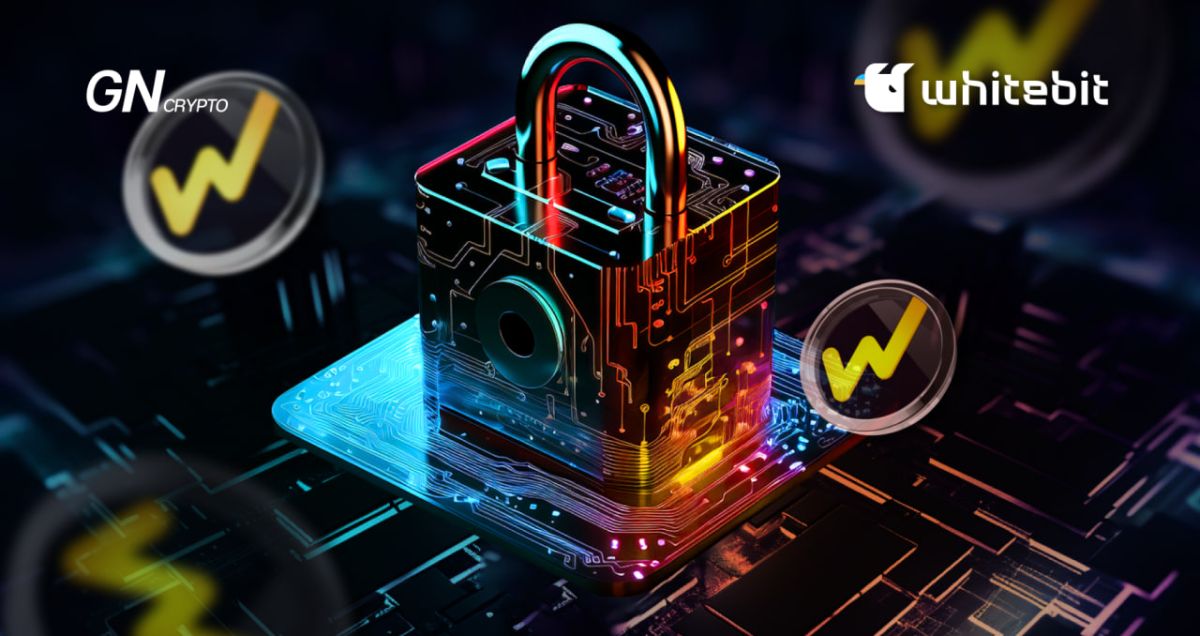WhiteBIT’s Cybersecurity Tips

Cyberattacks are becoming a regular headline. According to a Global Web3 Security Report, the crypto industry is facing losses of up to $889 million in recent times due to such incidents. This alarming statistic brings the focus on cybersecurity, highlighting the need to secure our cryptocurrency assets.
On this page
And what better way to educate oneself than by gaining insights from a crypto exchange that takes cybersecurity very seriously? We’ve garnered some useful tips from WhiteBIT, which is ranked among the top three safest crypto exchanges in the world according to audits by Hacken as well as the CER.live rating, where it achieved the highest AAA level. A standout feature of the exchange is that 96% of WhiteBIT’s digital assets are stored in cold wallets, providing a robust barrier against online attackers.
However, the exchange's security measures are just part of the picture. The user’s role is critical too. Insufficient cybersecurity knowledge can leave users vulnerable, making them easy targets for fraudsters. With this in mind, here’s a reminder of how one can use a crypto exchange securely, provided by cybersecurity professionals at WhiteBIT.
WhiteBIT’s Cybersecurity Handbook
Rule #1: Stay Alert to Phishing
Phishing exploits fake websites to snatch your confidential data. The fraudsters craftily mimic legitimate sites, poised to pounce the moment you key in your details. A prime defense is ensuring you're on the official site before entering any information. WhiteBIT aids this cause by offering a tool to verify its official channels and regardless of which platform you use, always make sure that you are using and speaking to official channels. Additionally, setting up anti-phishing codes is encouraged to authenticate emails, fortifying your defense against deceitful digital nets.
Rule #2: Don’t Fall for Phone Call Traps
Unexpected calls, especially those fishing for personal details or funds, are a red flag. Crypto exchanges like WhiteBIT won't call to offer services or seek personal info. WhiteBIT provides call center support, where a strict policy against asking for personal credentials is in place. Never give anyone your passwords.
Rule #3: Always Double-Check the Address
A misstep in entering the recipient's address can cost you your assets. Ward off a change of address attack by meticulously verifying the destination before hitting ‘send.' Here’s a roadmap to stay on the safe side:
- Verify the address a couple of times before authorizing the transfer.
- Examine each character of the address diligently.
- Avoid copy pasting addresses from your transaction history.
- Send out a small amount of funds to test the transaction and ensure the address accuracy.
Finally, if an address raises suspicion of illicit activities, an Anti-money laundering (AML) check would be a smart move. Verified exchange users can independently analyze the addresses they interact with, with WhiteBIT Coin (WBT) holders using this perk for free.
If you have any doubts about the actions you are about to take or notice any suspicious activity with you or your loved ones, be sure to contact [email protected] or our social media chats. If you have already become a victim of fraud, be sure to contact the support of the service you use and notify law enforcement agencies,
WhiteBIT representatives say.
Advanced Cybersecurity Tips from WhiteBIT
Personal Information Caution: Avoid sharing personal or financial details over the phone unless you're sure of the caller's legitimacy.
Unknown Contact Alert: Treat calls from unknown numbers or unsolicited messages with caution. Decline calls seeking personal information or money.
Caller Verification: If called by someone claiming affiliation with a bank or other organization, verify by calling the official number of the entity.
Email Sender Check: Fraudulent emails may pose as crypto exchange support. Verify the sender's contacts before responding.
Remote Access Software: Avoid downloading remote access software like AnyDesk, TeamViewer, or Chrome Remote Desktop.
Fraud Reporting: Report any fraudulent activity to local law enforcement and your service provider promptly.
Education: Inform family and friends about potential scams and protective measures to ensure their digital safety.
And remember, better safe than sorry, so always be extra careful when it comes to your assets.
The content on The Coinomist is for informational purposes only and should not be interpreted as financial advice. While we strive to provide accurate and up-to-date information, we do not guarantee the accuracy, completeness, or reliability of any content. Neither we accept liability for any errors or omissions in the information provided or for any financial losses incurred as a result of relying on this information. Actions based on this content are at your own risk. Always do your own research and consult a professional. See our Terms, Privacy Policy, and Disclaimers for more details.

























